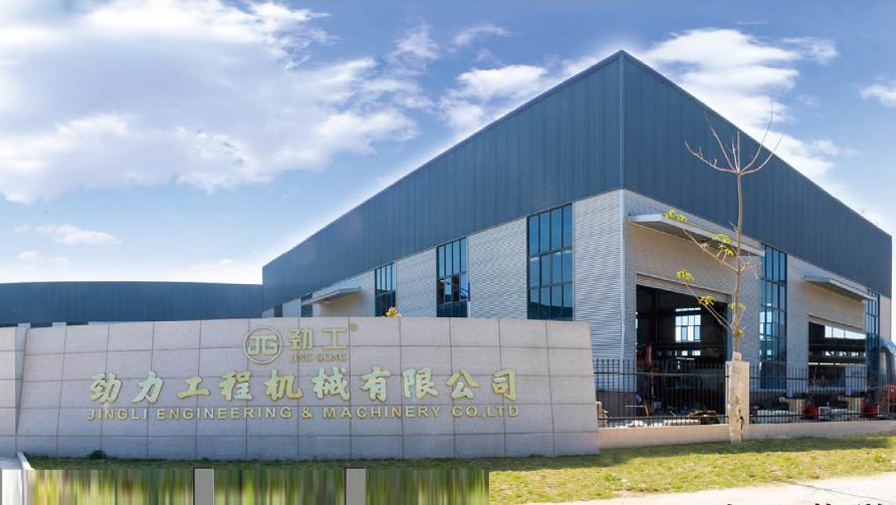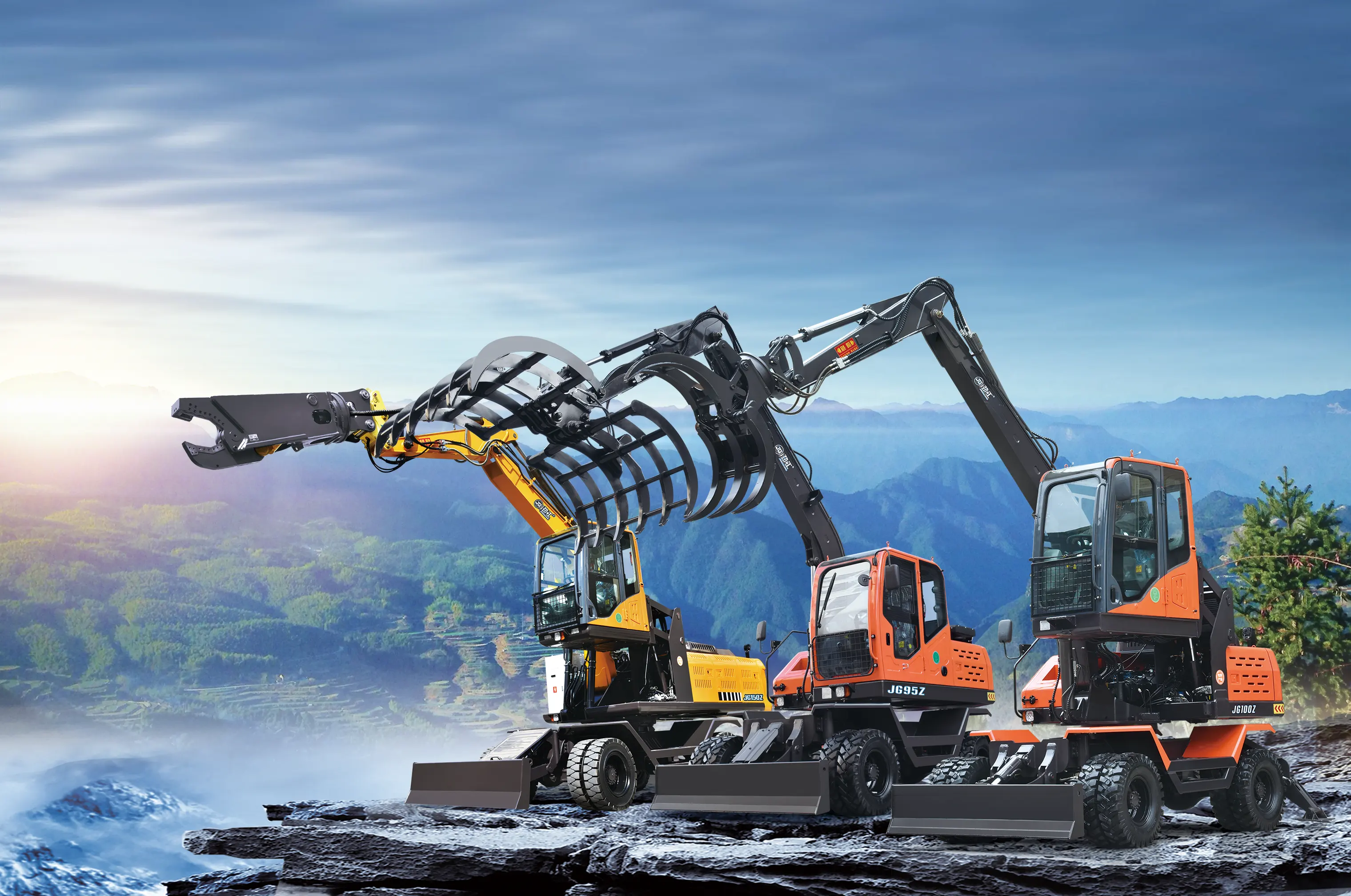
Online Inquiry
How to Select the Right Hydraulic Crawler Excavator for Your Project
TIME:2025-05-13 10:00
How to Select the Right Hydraulic Crawler Excavator for Your Project
When it comes to the construction industry, the right machinery can significantly enhance operational efficiency. Among the vital equipment pieces, the **hydraulic crawler excavator** stands out for its versatility and power. Selecting the right one for your project can be a daunting task, especially given the myriad of options available in the market. In this article, we will delve into the specifics of choosing the ideal hydraulic crawler excavator tailored to your project’s needs.
Table of Contents
1. Understanding Hydraulic Crawler Excavators
2. Key Specifications to Consider
- 2.1 Engine Power and Efficiency
- 2.2 Operating Weight and Dimensions
- 2.3 Bucket Capacity and Digging Depth
3. Attachments and Accessories
4. Understanding Your Project Type and Requirements
5. Evaluating Excavator Brands
6. Budget Considerations
7. Safety Features and Industry Regulations
8. Maintenance and Service
9. Frequently Asked Questions
10. Conclusion
Understanding Hydraulic Crawler Excavators
Hydraulic crawler excavators are specialized machines designed for digging, lifting, and moving heavy materials. Unlike wheeled excavators, the **crawler mechanism** offers enhanced stability and maneuverability, particularly on uneven terrains. These machines utilize hydraulic systems to generate powerful force, making them ideal for challenging tasks in construction, mining, and landscaping.
Key Specifications to Consider
When selecting a hydraulic crawler excavator, it is crucial to evaluate certain specifications that align with your project’s demands.
Engine Power and Efficiency
The **engine power** of a hydraulic excavator is a crucial specification that directly affects its performance. Look for machines with a balance of horsepower and fuel efficiency. A more powerful engine can handle tougher tasks, while efficient fuel consumption minimizes operational costs. Consider the following:
- **Horsepower Ratings**: Higher horsepower ratings typically indicate better performance in demanding conditions.
- **Fuel Type**: Evaluate whether diesel or alternative fuel options align with your operational needs.
Operating Weight and Dimensions
The **operating weight** of the excavator determines its lifting capacity and stability. Larger excavators can handle heavier loads but may struggle in confined spaces. Key considerations include:
- **Size and Dimensions**: Ensure the excavator fits within your project’s spatial constraints.
- **Weight Classes**: Familiarize yourself with the different weight classes (mini, small, medium, large) to find the ideal match for your project.
Bucket Capacity and Digging Depth
The **bucket capacity** relates directly to how much material the excavator can move in a single scoop. A larger bucket capacity typically speeds up the excavation process. Additionally, consider the maximum **digging depth** which aligns with the requirements of your project.
- **Bucket Types**: Different bucket designs (general-purpose, trenching, grading) serve specific functions, so choose based on the tasks at hand.
- **Digging Reach**: Evaluate the excavator’s reach to ensure it can operate effectively in your project’s environment.
Attachments and Accessories
Hydraulic crawler excavators are highly versatile, often equipped with various **attachments** like hydraulic hammers, grapples, and augers. When selecting an excavator, assess the following:
- **Compatibility with Attachments**: Ensure that the excavator can accommodate different attachments based on your anticipated work.
- **Ease of Switching**: Quick couplers allow for fast changes between attachments, increasing efficiency on the job site.
Understanding Your Project Type and Requirements
The type of project you are undertaking significantly influences the choice of excavator. Here are common scenarios to consider:
- **Residential Construction**: Smaller excavators (mini to small) are ideal for home-building projects where space is limited.
- **Roadwork and Infrastructure**: Medium to large excavators are necessary for extensive digging and heavy lifting.
- **Landscaping**: Depending on the scale, a mini excavator may suffice for gardening and aesthetic projects.
Assessing the specific requirements of your project will help streamline your decision-making process.
Evaluating Excavator Brands
Not all hydraulic crawler excavators are created equal. Reputation and reliability of brands play a significant role in your choice. Consider the following:
- **Market Leaders**: Brands like Caterpillar, Komatsu, and Hitachi have established themselves as leaders in the industry.
- **Customer Reviews**: Research user reviews and ratings to gauge performance and reliability.
- **Warranty and Support**: A solid warranty and dependable customer support can save you time and resources in the long run.
Budget Considerations
Establishing a budget is fundamental when selecting a hydraulic crawler excavator. Determine the following:
- **Purchase vs. Rental**: Evaluate whether purchasing or renting an excavator aligns better with your financial situation.
- **Long-term Costs**: Factor in maintenance, fuel, and operational costs when assessing your budget. A lower upfront cost may lead to higher long-term expenses if the machine is less efficient.
Safety Features and Industry Regulations
Safety should be a top priority when selecting construction equipment. Ensure that the hydraulic crawler excavator you choose complies with industry safety regulations. Evaluate features such as:
- **Rollover Protection**: Important for ensuring operator safety.
- **Emergency Shut-off Systems**: Quick access to controls in case of emergencies enhances safety on-site.
Maintenance and Service
Regular maintenance extends the lifespan of an excavator and ensures optimal performance. When selecting your machine, consider:
- **Service Intervals**: Understand the recommended maintenance schedule to avoid costly downtimes.
- **Availability of Parts**: Opt for brands that offer easy access to spare parts and service technicians for repairs.
Frequently Asked Questions
1. What is the difference between a hydraulic crawler excavator and a wheeled excavator?
Hydraulic crawler excavators offer better stability and traction on uneven terrain, making them suitable for tougher jobs compared to wheeled excavators, which are more mobile on flat surfaces.
2. How can I determine the right bucket size for my excavator?
Your bucket size should be determined by the type of material you will be moving and the specific requirements of your project. Consult the excavator's specifications for recommended bucket sizes.
3. Are hydraulic crawler excavators fuel-efficient?
The fuel efficiency of hydraulic crawler excavators varies by model and brand. Look for units that balance power and fuel consumption for optimal performance.
4. What safety features should I look for in a hydraulic crawler excavator?
Key safety features include rollover protection, emergency shut-off systems, and visibility enhancements. Always prioritize machines that meet industry safety standards.
5. Can I use attachments from different brands on my excavator?
While many attachments may be compatible across brands, it is crucial to check for compatibility with your specific excavator model to ensure safe and effective operation.
Conclusion
Selecting the right hydraulic crawler excavator for your project is a multifaceted process that involves evaluating several critical factors. By understanding the specifications, assessing project requirements, and considering brand reliability, you can make an informed decision. Remember that the right excavator not only enhances productivity but also contributes to the overall success of your project. Take the time to research, evaluate, and consult with experts if necessary, ensuring you choose the best machinery suited to your needs.










